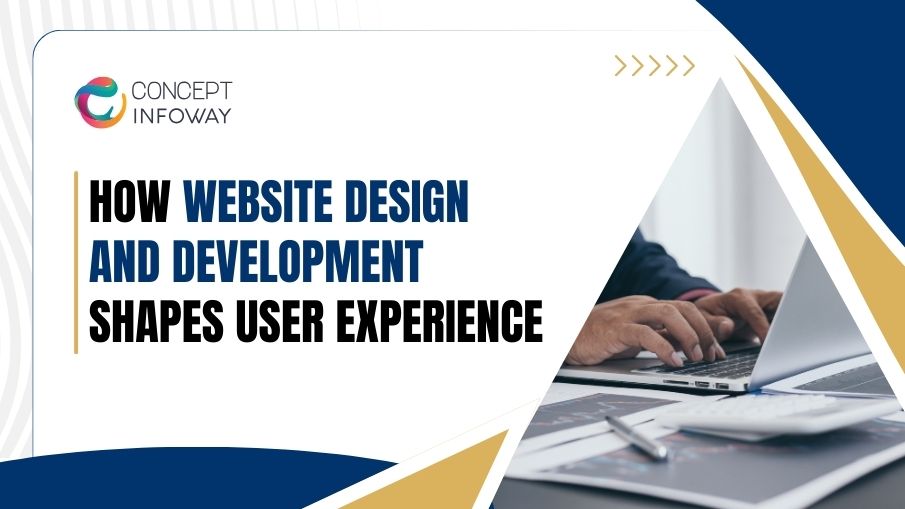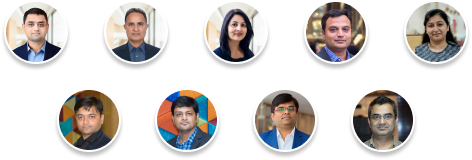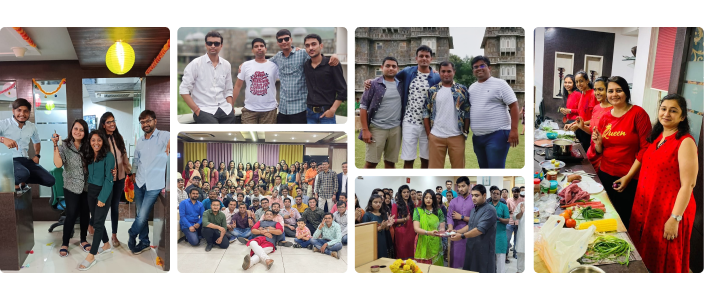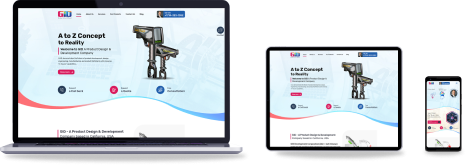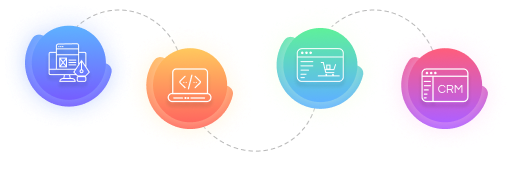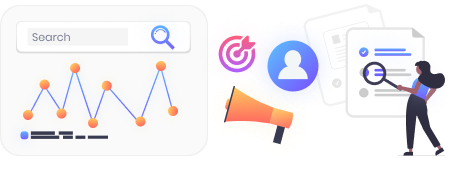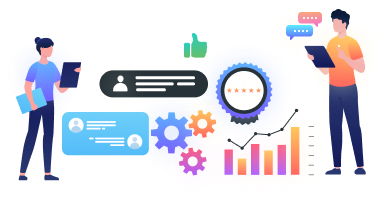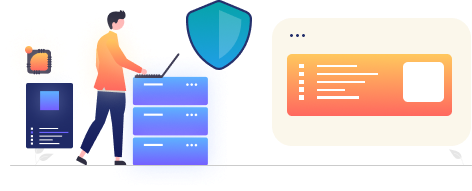
PHP Developers: Key Trends and Technologies to Watch in 2025
In 2025, the digital landscape continues to evolve, with web development at the forefront of technological innovation. Among the many programming languages driving the creation of dynamic websites and applications, PHP has proven itself as an enduring powerhouse. As businesses and developers look for robust, scalable, and cost-effective solutions, PHP remains a top choice, underscoring its relevance and versatility. PHP developers are tasked with navigating an ever-changing industry, making it essential to stay informed about emerging trends and technologies. This article will delve into the key trends and tools that PHP developers should keep an eye on as they push the boundaries of web development in 2025.
PHP, which stands for Hypertext Preprocessor, first emerged in the mid-1990s. It was initially conceived as a simple scripting tool to help build basic websites, but over time, PHP transformed into a full-fledged, powerful programming language. PHP’s adaptability and its ability to seamlessly integrate with various database systems, particularly MySQL, played a crucial role in the growth of the internet in the late 1990s and early 2000s.
One of the key reasons behind its continued success is the simplicity of the language and its widespread community support. Today, PHP powers a significant portion of the internet, including major content management systems like WordPress, Drupal, and Joomla. PHP developers, armed with their deep understanding of this versatile language, continue to contribute to its widespread use.
Despite the emergence of newer technologies such as Node.js, Python, and various front-end frameworks, PHP has managed to maintain its popularity. The reasons for this are manifold. PHP’s deep ecosystem, the vast number of frameworks available (such as Laravel, Symfony, and CodeIgniter), and its strong community make it an enduring choice for web development. In 2025, PHP developers still hold a critical place in building scalable web applications, enterprise software, e-commerce solutions, and much more. PHP’s flexibility allows developers to adapt to the latest trends, making it a key skill for professionals looking to remain relevant in this field.
Hire Php Developers?
Contact Us Today!When searching for “PHP developers near me” or considering a trusted “PHP developer agency,” businesses need to consider how this language can meet their specific requirements. The robustness of PHP frameworks, the increasing adoption of PHP 8.0 and beyond, and the focus on modern practices like object-oriented programming and test-driven development contribute to PHP’s enduring relevance. PHP developers must also pay attention to trends in serverless computing, integration with APIs, and enhanced security measures—trends that are shaping the way PHP is used in web development today.
As we move further into 2025, the role of a PHP developer will be more important than ever. PHP developers not only need to be adept in coding but also require expertise in areas such as software architecture, cybersecurity best practices, and continuous integration. Those who remain updated with the latest technologies and methodologies will be well-positioned to make a significant impact on the future of web development.
Key Trends and Technologies for PHP Developers in 2025
In 2025, the world of PHP development continues to evolve at a fast pace, with new technologies, tools, and methodologies reshaping how PHP developers approach their projects. To stay competitive and innovative, PHP developers must be aware of these key trends and advancements. This section explores the most significant trends and technologies that are impacting PHP development in 2025.
1. Cloud-Native PHP Development
Serverless Architecture and PHP
One of the most significant shifts in web development is the move toward serverless computing. This trend has been gaining traction as businesses look for scalable and cost-effective solutions. For PHP developers, serverless architecture offers an opportunity to build applications without having to manage the underlying infrastructure. Platforms such as AWS Lambda, Azure Functions, and Google Cloud Functions allow developers to deploy PHP code in a serverless environment, enabling them to focus more on the code and less on server management. This shift can lead to faster development cycles and more efficient use of resources.
Integration with Cloud Platforms (AWS, Azure, GCP)
The seamless integration of PHP applications with major cloud platforms is essential for modern development. Cloud platforms like AWS, Azure, and Google Cloud Platform (GCP) offer a range of services that can be leveraged by PHP developers. From storage solutions like Amazon S3 and Azure Blob Storage to managed database services such as Amazon RDS and Azure Database for MySQL, PHP developers can create robust and scalable applications that are cloud optimized. Additionally, cloud platforms offer continuous integration and deployment (CI/CD) tools, which streamline the development process and help maintain the quality of PHP applications.
Cloud-Based Development Tools and Services
The use of cloud-based development tools is another trend that PHP developers must embrace. Platforms such as GitHub Codespaces, AWS Cloud9, and Visual Studio Code with cloud extensions allow developers to write, debug, and deploy PHP code directly from a cloud environment. These tools facilitate collaboration and make it easier for PHP developers to work in distributed teams. Cloud-based services also often include built-in monitoring and analytics, which help developers gain deeper insights into the performance and health of their applications.
2. AI and Machine Learning Integration
Leveraging AI for PHP Applications
Artificial intelligence (AI) and machine learning (ML) have permeated nearly every aspect of technology, including web development. PHP developers can now integrate AI capabilities into their projects to create more intelligent, responsive, and adaptive applications. For instance, chatbots powered by natural language processing (NLP) and recommendation engines can be easily incorporated into PHP-based web applications using existing AI APIs or by leveraging frameworks that simplify ML integration.
Natural Language Processing (NLP) with PHP
NLP technologies allow PHP developers to build applications that can understand and process human language. By utilizing NLP libraries and services, developers can create applications with features such as automated content moderation, sentiment analysis, and customer interaction bots. Popular NLP libraries like php-ai/php-ml provide tools for basic machine learning tasks and can be integrated into PHP code to enhance functionality.
Machine Learning Frameworks and Libraries for PHP
While PHP is not traditionally known for its ML capabilities, developers can still harness several powerful libraries to add machine learning features to their applications. Libraries such as PHP-ML and Rubix ML offer an array of algorithms and tools for building and training machine learning models. These libraries enable PHP developers to implement functionalities such as predictive analytics, customer segmentation, and real-time data analysis without having to switch to more ML-centric languages like Python or R.
Read Also: Enhancing Your Project with Azure Consulting Services and PHP
3. Progressive Web Apps (PWAs) with PHP
Benefits of PWAs for PHP Applications
Progressive Web Apps (PWAs) combine the best aspects of web and mobile applications, providing users with a fast, reliable, and engaging experience. For PHP developers, PWAs offer a new way to build applications that are responsive and function offline, like native mobile apps. PWAs can significantly improve user engagement and retention, making them an attractive option for businesses looking to enhance their web presence.
Building PWAs with PHP Frameworks
Many PHP frameworks now support the development of PWAs. Frameworks such as Laravel and Symfony come with extensions and tools that help developers integrate service workers, push notifications, and offline capabilities into their PHP applications. Laravel PWA, for instance, is a popular package that allows PHP developers to easily transform existing applications into progressive web apps without extensive code changes. This approach ensures that PHP developers can keep up with modern web development standards while using their existing knowledge and skill sets.
Best Practices for PWA Development with PHP
To build a successful PWA, PHP developers should follow best practices, such as optimizing app performance with caching strategies, implementing service workers to handle offline functionalities, and ensuring a seamless user experience through responsive design. Developers should also pay attention to SEO and accessibility to maximize the reach and usability of their PWAs.
4. Real-time Applications with WebSockets
Understanding WebSockets and Their Use Cases
Real-time communication is becoming an essential aspect of modern web applications. WebSockets provide a two-way communication channel between the server and the client, allowing for real-time data exchange. This is particularly useful for applications that require instant updates, such as chat applications, live sports scores, and collaborative tools. For PHP developers, understanding how to implement WebSockets can open new possibilities for creating highly interactive and engaging applications.
Implementing Real-time Features in PHP Applications
To implement real-time features using WebSockets, PHP developers can utilize libraries such as Ratchet, a PHP WebSocket library that supports real-time communication through WebSockets. Ratchet works well with existing PHP frameworks, enabling developers to build chat systems, live notifications, and collaborative applications efficiently. Integration with a message broker like RabbitMQ or Redis can help manage communication between clients and scale real-time applications.
WebSocket Frameworks and Libraries for PHP
Besides Ratchet, other PHP libraries and tools help developers implement real-time features. Libraries like Swoole extend PHP’s capabilities to include asynchronous, multi-threaded programming. This makes it easier for PHP developers to build high-performance applications that can handle many simultaneous connections, making it ideal for real-time data streaming and live updates.
5. Security Best Practices for PHP Developers
Common Security Vulnerabilities in PHP
Web security is an ongoing concern for PHP developers. The most common vulnerabilities include SQL injection, cross-site scripting (XSS), cross-site request forgery (CSRF), and insecure file uploads. Identifying and addressing these vulnerabilities early in the development process can help prevent data breaches and attacks. PHP developers must stay vigilant and adopt secure coding practices to protect their applications.
Best Practices for Secure PHP Development
To ensure secure PHP development, developers should implement practices such as input validation and sanitization, using parameterized queries to prevent SQL injection, and employing built-in PHP functions to handle data securely. Utilizing modern PHP frameworks that offer built-in security features—such as Laravel’s CSRF protection and Symfony’s security components—can help streamline these practices. Regular code reviews and security audits should also be part of the development workflow to identify potential weaknesses and mitigate risks.
Security Tools and Techniques for PHP Applications
Security tools like PHPStan and Psalm can help developers identify vulnerabilities and potential security flaws in their code during the development phase. Additionally, employing tools like OWASP ZAP for penetration testing and using encryption libraries to secure data at rest and in transit are essential for PHP developers looking to protect user data and maintain application integrity.
6. Emerging PHP Frameworks and Tools
A Deep Dive into the Latest PHP Frameworks (Laravel, Symfony, etc.)
PHP frameworks are crucial for streamlining development and ensuring best practices. In 2025, popular PHP frameworks like Laravel and Symfony continue to evolve, offering enhanced features and tools that PHP developers can leverage. Laravel, known for its simplicity and extensive ecosystem, now includes support for advanced features such as job queues, event broadcasting, and integrated real-time capabilities. Symfony, with its component-based architecture, remains a powerful option for developers who want to build highly customized and modular applications.
New PHP Tools and Libraries for Efficient Development
New libraries and tools are emerging to help PHP developers work more efficiently. Tools like PHPStan and Psalm provide static analysis and help identify bugs before they become an issue. Other tools such as Deployer simplify the deployment process, making it easier for developers to manage complex application rollouts. With the growing ecosystem, developers can now access specialized packages for areas like database management, testing, and performance optimization.
Read Also: Why Choose a MERN Stack Development Company for Mobile Apps?
Future Trends in PHP Frameworks and Tools
As PHP development advances, frameworks and tools are expected to incorporate more modern software development practices, such as microservices architecture and containerization. The integration of PHP with platforms like Docker and Kubernetes will enable developers to create more scalable and manageable applications. Additionally, the emphasis on serverless PHP development will encourage the creation of new tools and frameworks that support cloud-native architectures.
In conclusion, PHP developers must be proactive in adapting to the trends and technologies shaping the industry in 2025. From integrating cloud services and AI functionalities to leveraging real-time features and adhering to the latest security practices, PHP developers have a plethora of opportunities to refine their skills and elevate their projects. Partnering with a professional PHP developer agency that understands these trends can make a significant difference for businesses looking to stay ahead of the curve.
Why Choose Concept Infoway for PHP Development
Concept Infoway is a leading PHP developer agency known for its outstanding PHP development services. With years of experience in building scalable, high-performance web applications, Concept Infoway has established itself as a trusted partner for businesses worldwide. Whether it’s custom website development, enterprise software solutions, or complex e-commerce platforms, Concept Infoway’s team of expert PHP developers have the skills and the knowledge to bring any vision to life.
Core Strengths of Concept Infoway
One of the key differentiators of Concept Infoway is its team of highly skilled PHP developers. The agency has consistently delivered top-tier web solutions by employing a team of developers who possess both deep technical expertise and a keen understanding of modern development practices. From PHP basics to the latest frameworks and technologies, Concept Infoway’s developers are adept at using PHP to its full potential, ensuring that clients receive robust and reliable applications.
Another core strength of Concept Infoway is its proven track record of successful projects. The agency has completed a multitude of PHP projects across various industries, including healthcare, finance, e-commerce, and education. Each project showcases their ability to handle challenges and deliver solutions that align with the client’s vision and requirements. This extensive experience enables Concept Infoway to tackle a wide range of project complexities, from straightforward websites to feature-rich, dynamic applications.
Commitment to quality and client satisfaction is at the heart of Concept Infoway’s operations. The agency adopts a customer-centric approach to development, focusing on clear communication, transparency, and collaboration throughout the project lifecycle. Their goal is to deliver products that not only meet but exceed client expectations. Concept Infoway’s PHP developers employ industry best practices and methodologies, ensuring that each piece of code is clean, maintainable, and optimized for performance.
In addition to skilled development, Concept Infoway stays ahead by integrating the latest technologies and tools into its projects. From the newest PHP frameworks like Laravel and Symfony to modern development practices such as CI/CD pipelines, the agency ensures that its clients benefit from the most advanced solutions available. This use of the latest technologies allows Concept Infoway to offer innovative and future-proof web solutions that stand out in today’s competitive market.
Another compelling reason to choose Concept Infoway is its commitment to providing cost-effective solutions. The agency understands that businesses often operate under budget constraints, which is why they offer competitive pricing without compromising on quality. By optimizing development processes and leveraging the latest tools, Concept Infoway delivers high-value services that maximize the return on investment for their clients.
Frequently Asked Questions – FAQs
What are the top 3 emerging technologies that PHP developers should focus on in 2025?
To stay ahead of the curve, PHP developers should prioritize these three technologies:
- Artificial Intelligence (AI) and Machine Learning (ML): Integrating AI and ML into PHP applications can revolutionize user experiences and automate tasks.
- Serverless Architecture: Embracing serverless frameworks like Laravel Vapor can streamline development and reduce operational overhead.
- Progressive Web Apps (PWAs): Building PWAs with PHP can enhance user experience, improve performance, and increase engagement.
How can PHP developers ensure the security of their applications in 2025?
Security should be a top priority for PHP developers. Here are some essential tips:
- Stay Updated: Keep PHP and frameworks up-to-date with the latest security patches.
- Input Validation: Always validate and sanitize user input to prevent vulnerabilities like SQL injection and cross-site scripting (XSS).
- Secure Coding Practices: Follow secure coding guidelines and use tools like PHP Code Sniffer to identify potential issues.
- Regular Security Audits: Conduct regular security audits to identify and address vulnerabilities.
Is PHP still relevant in 2025, considering the rise of newer languages?
Absolutely! PHP remains a powerful and versatile language with a strong community and a vast ecosystem of frameworks and tools. Its continuous evolution and ability to adapt to emerging trends ensure its relevance in 2025 and beyond.
What are the key benefits of using a PHP framework like Laravel or Symfony?
PHP frameworks offer numerous benefits to developers, including:
- Rapid Development: Built-in features and conventions accelerate development.
- Security: Robust security features and best practices to protect applications.
- Scalability: The ability to manage increasing traffic and data loads.
- Community and Support: Large communities and extensive documentation for help and resources.
How can PHP developers improve their skills and stay updated with the latest trends?
To stay competitive, PHP developers should:
- Continuous Learning: Regularly follow blogs, tutorials, and online courses.
- Practice and Experiment: Build personal projects to apply new skills.
- Engage with the Community: Participate in forums, conferences, and open-source projects.
- Certifications: Consider obtaining certifications to validate expertise.
What are the best practices for optimizing PHP application performance?
To optimize PHP application performance, consider these strategies:
- Caching: Implement caching techniques to reduce database queries and server load.
- Code Optimization: Write efficient code and avoid unnecessary operations.
- Database Optimization: Optimize database queries and indexes.
- Content Delivery Networks (CDNs): Use CDNs to improve website load times.
How can PHP developers leverage AI and ML to enhance their applications?
AI and ML can be integrated into PHP applications to:
- Personalize User Experiences: Tailor content and recommendations based on user behavior.
- Automate Tasks: Automate routine tasks like data entry and report generation.
- Improve Decision-Making: Analyze data to make informed decisions.
- Enhance Security: Detect and prevent security threats.
Conclusion
In this rapidly changing tech landscape of 2025, staying informed about the latest trends and technologies in PHP development is crucial. From cloud-native solutions and AI integrations to real-time applications and enhanced security measures, the landscape for PHP developers is expanding and evolving. Embracing these advancements can set developers and businesses apart, ensuring they stay competitive and relevant.
Looking ahead, PHP continues to be a cornerstone of web development, known for its flexibility, scalability, and vast ecosystem. As emerging frameworks, tools, and practices evolve, PHP developers will need to be agile and knowledgeable to harness these innovations. This ongoing growth is indicative of PHP’s resilience and its potential to power next-generation applications.
For those looking for a reliable partner to help navigate these trends and implement them into their projects, Concept Infoway stands out as a top choice. Their commitment to quality, cutting-edge technology, and client satisfaction makes them a preferred PHP developer agency. Don’t miss the opportunity to work with experienced PHP developers who can deliver tailored solutions that meet your specific needs. Reach out to Concept Infoway today and take your PHP development projects to the next level.
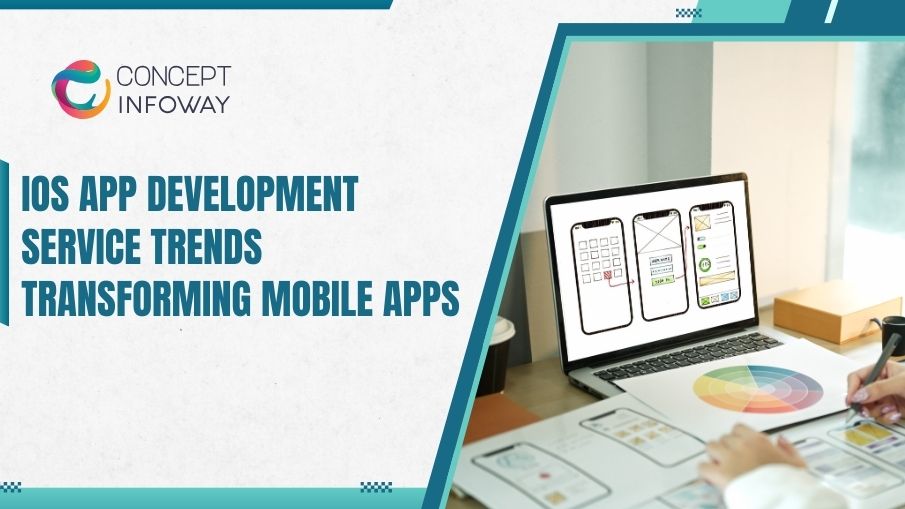
iOS App Development Service Trends Transforming Mobile Apps
